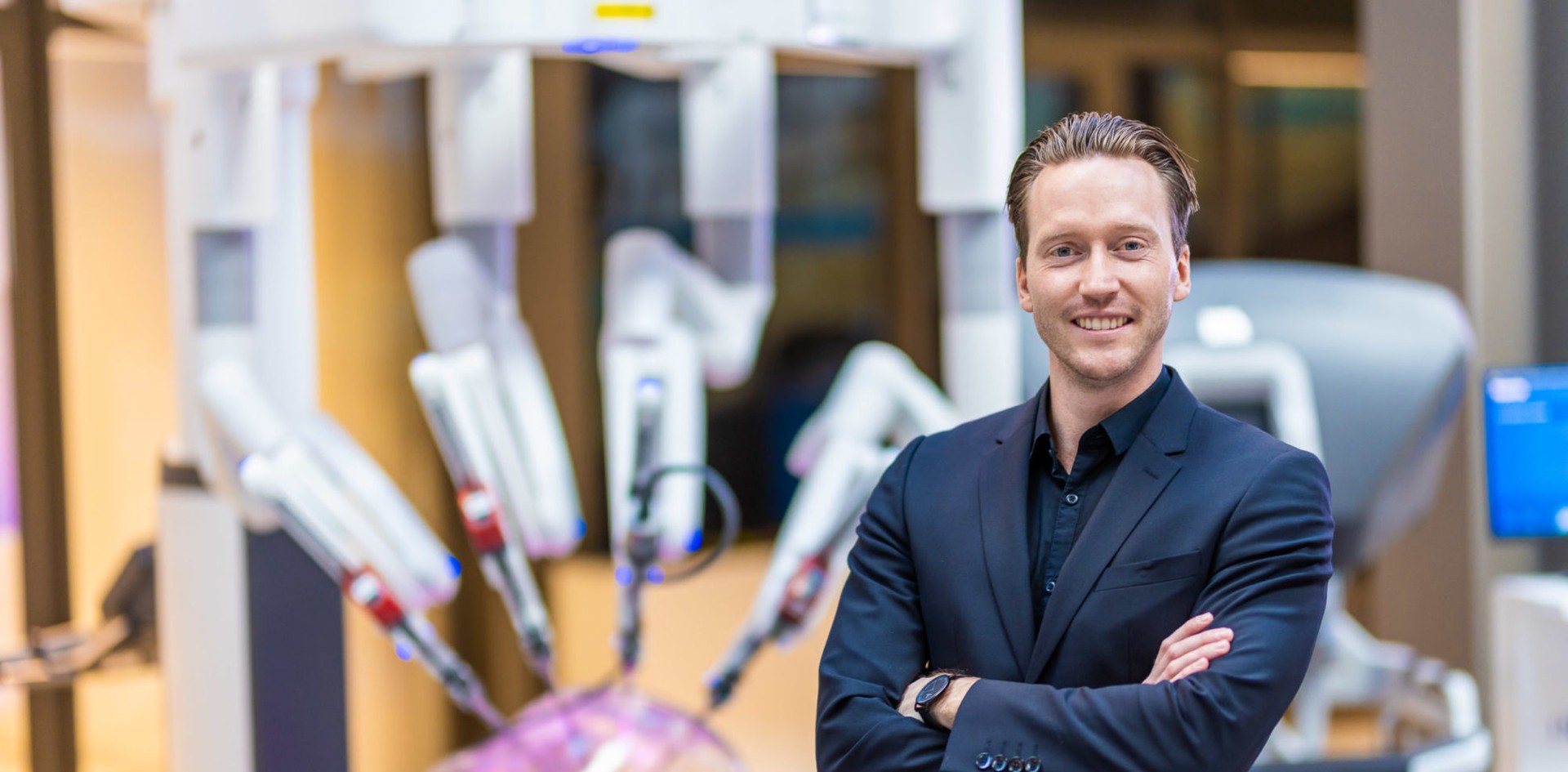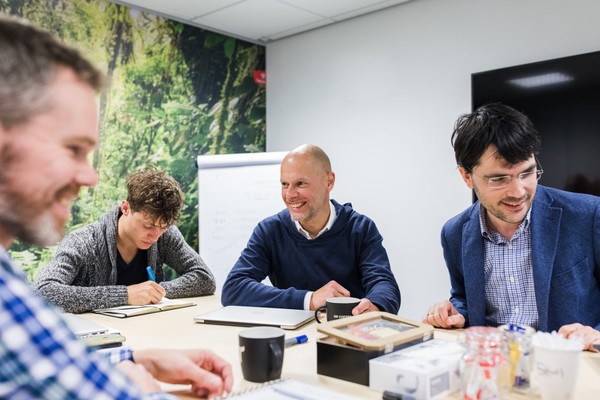cases >> Flux Robotics
ROBOT ARMS AS AN EXTENSION OF THE HAND OF THE SURGEON.

ROBOT ARMS AS AN EXTENSION OF THE HAND OF THE SURGEON.
They say you’ve made it when you turned your passion into your job. And if that’s an indicator of a success story, Christoff’s story is definitely a success. With Flux Robotics, he’s reshaping how surgeries are performed to ensure more efficiency, shorter waiting times, and better results for the patients.
Flux Robotics produces robotic arms that can help surgeons perform surgeries. An extension of the hand of the surgeon, so to say. Something Christoff is clearly passionate about. With a huge smile, he explains: “The thing that makes it more a passion than a job is that it’s an opportunity. We constantly see the effect of new technologies on society, and our technology is a gateway for providing leadership and training for the next generation of cardiovascular surgeons. That’s something to be excited about. Also, robotics gives you a different perspective to expand your problem-solving skills and enhance creativity. Technology can help us improve, but you need to move with it. And however cool a technology may seem, you always have to look at the human factor’s role. In the end, people need to benefit from it.”
Take away the fear
However, as Christoff mentioned in his TEDx talk , change induces fear. “It’s one of our top priorities to remove the fear of our technology. In fact, it should be for all MedTech companies. It’s through society that stigmas are developed on new technologies. The general public frequently holds incorrect beliefs about robotics in healthcare, and they can be very vocal in promoting these beliefs. We must show that we can make a difference in real life and that it’s more than ‘nice’ theories. And a way of doing so is to focus on the people. Not just the surgeons and the patients but also the people from Flux. Ultimately, technology is useless without people. That’s also why we don’t focus on the role but on the goal: making healthcare more accessible. Everyone at Flux Robotics is motivated by what they do.”
Doing it all
That same goal and motivation are why it looks like Christoff is doing everything simultaneously. Because apart from being a researcher, lecturer, and CEO, he can also be seen on different stages, from TEDxTwenteU to the Dutch Innovation days . “Don’t underestimate the power of time management. Many tasks take up a lot less time than we think. For example, posting something on LinkedIn doesn’t take much time, but it can provide more visibility for you and your brand. For me, it’s key to plan what parts of my day are more research-oriented or business-oriented so that I can keep focus. Yet, people often hide behind the illusion that planning is where success comes from, but it’s all about execution. An idea is worth nothing without execution. On the flip side, I also take time to do nothing. Grab a coffee, sit outside for ten minutes, or meditate. It sounds silly, but I look in the mirror every day and ask myself if I’m okay. If I’m not, I’ll notice it then, and I can slow down to match my resources. Juggling everything is fine, but don’t spread yourself too thin.”
Questions answered
Flux Robotics was also one of the first companies to participate in the imec.istart.nl accelerator program. “That was quite a new journey for us. And it was interesting to see that imec answered my many questions regarding regulatory pathways, pricing strategies, and our investment roadmap. When you talk to other companies, they’re often not out to help you, so they don’t provide the full answer. With imec.istart.nl, that was completely different. The biggest issue they helped us solve was the chicken-egg scenario for our first imminent valley of death. Many MedTech investors only want to invest in you when you have completed your clinical trials. But that is exactly what you need funds for. Through the program, we realized that you could rather work with milestone-based tranches. You chop up your goals – and thus the investment – to bridge the gap. That insight was valuable for us; it should be basic knowledge.”
Impact in developing countries
This insight makes Flux Robotics ready for the future. “We recently became an official UT spin-off. I’m thrilled and relieved because of that. To see that we found the right problem-solution fit and to have one of the best tech universities in Europe support us is huge. Furthermore, I’m happy to say that we have a strong regulatory strategy. With that, you eventually want to show that your technology is not harmful to people. The next step is an animal trial on pigs, intending to have the pigs running around healthily after the surgery. After that, we’re going for FDA approval. If we receive that, we can start selling in the US. At that point, we can make the outcome for patients better. It would also mean that hospitals that don’t have enough resources or specialists can still perform these surgeries. Eventually, we could make the biggest impact in developing countries where there’s a lack of specialized surgeons. Coming from South Africa myself, I saw that lack happening. My ultimate goal with Flux Robotics is to help fix that and make our robots accessible to the globe.”

"Ultimately, technology is useless without people."
Christoff Heunis
CEO & co-founder of Flux RoboticsMore about
Flux Robotics
They say you’ve made it when you turned your passion into your job. And if that’s an indicator of a success story, Christoff’s story is definitely a success. With Flux Robotics, he’s reshaping how surgeries are performed to ensure more efficiency, shorter waiting times, and better results for the patients.






